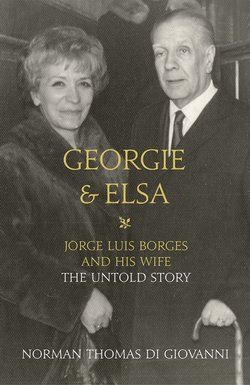Читать книгу Georgie and Elsa: Jorge Luis Borges and His Wife: The Untold Story - Литагент HarperCollins USD, F. M. L. Thompson - Страница 5
Prologue A Figure of Speech
ОглавлениеSynecdoche, a part standing for the whole.
In 1944, in the kind of incisive and highly literary statement typical of him, the celebrated Argentine poet and storyteller Jorge Luis Borges postulated in one of his tales that ‘Any life, no matter how long or complex it may be, is made up essentially of a single moment – the moment in which a man finds out, once and for all, who he is.’
Borges’s ultimate fame as a writer is based on a mere thirty-four stories written between 1933 and 1953 and published in two collections, Ficciones and El Aleph. His fiction was unpopular at the time, considered cryptic and abstruse, and it wasn’t until he was in his seventies that he began to be swamped with awards and prizes and honours – among them, honorary degrees from both Oxford and Cambridge.
At birth he had been given his father’s first name. In a household of English speakers – with a grandmother and great aunt of English stock – it was only natural that to distinguish father and son he be dubbed Little Jorge, or Georgie. The name stuck. To his family and to a handful of intimates he was known ever after as Georgie.
The story told here in Georgie & Elsa, in which I was both reluctant witness and tricky participant, took place in a three-year span between 1967 and 1970. What I have recounted, besides depicting and illuminating hitherto unknown facts and events in the couple’s affairs, is an attempt to find out whether a person’s life can be typified by a single part of it. Can the ups and downs and vicissitudes of a brief marriage reflect and define the essential character of either of the partners in that alliance? In short, can a marriage of only a few years’ duration reveal a man’s whole life? The man is Borges. What does his short, failed marital union with Elsa Astete Millán tell us about him?
